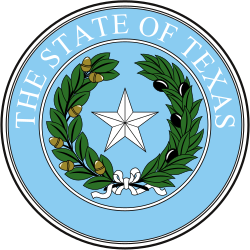| |||||||||||||||||
| |||||||||||||||||
Cornyn: 40–50% 50–60% 60–70% 70–80% 80–90% Kirk: 40–50% 50–60% 60–70% 70–80% 80–90% | |||||||||||||||||
| |||||||||||||||||
| Elections in Texas |
|---|
 |
The 2002 United States Senate election in Texas was held on November 5, 2002. Incumbent Republican U.S. Senator Phil Gramm decided to retire, instead of seeking a fourth term. State Attorney General Republican John Cornyn won the open seat. This was the first open-seat election since 1984.





